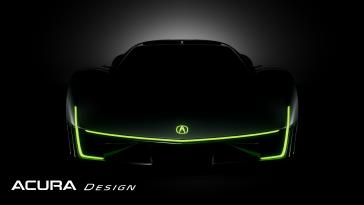Rumor is that Version 3 of the NSX will be electric.
Comments?
H-
Comments?
H-
Rumor is that Version 3 of the NSX will be electric.
Comments?
H-
I guess it depends on where you live but I have zero range anxiety and a 500 mile trip takes about an extra half hour in our Tesla which is more than made up for by having a full tank of electrons every morning and never wasting time at gas stations the rest of the time. Obviously travel in the legacy OEMs EVs is very different; I have tried using some of the other charging stations by Chargepoint and EVgo just to see what the experience is like and it was miserable - many broken chargers and even when they work pretty slow. Since that is the choke point for EVs, given the additional complication of building hydrogen fueling stations and manufacturing hydrogen I am having trouble seeing how the build out will happen even after they solve the freezing handle problem.

FCEV. Mark my words.Electric cars have all been about putting down insane numbers (and insane weight) as a function of their design parameters (more range = more battery = more available power). I'd like to see the NSX go a different direction, something like what Gordon Murray is doing with his T.50 and T.33 but chasing "classic" performance has never been what the NSX is about, so I expect that the new NSX will chase numbers as well. The original NSX redefined what a supercar could be. The second NSX made the hybrid supercar at a non-astronomical price point. I'm curious to see if and how the next NSX sets itself apart (other than pricing) from the upcoming crop of electric supercars.
FCEV. Mark my words.
FCEV will likely be for JDM market only since Japan is building a massive H2 infrastructure. 3rd Gen development went back to Honda Japan since they were disappointed with the US-based Acura team on the Gen 2. USDM version will probably be a BEV.I think hydrogen fuel cells are interesting and it would surely set the NSX apart, but I've never seen an FCEV on the east coast. I don't think I've even seen a hydrogen fuel station. I imagine an FCEV NSX would sell worse than the second generation NSX or even a full EV NSX.
Agree. BEV is the bridge to H2. But full-market adoption of batteries puts a fairly heavy strain on rare earths and presents similar issues to nuclear power with highly toxic waste from both mining, production and waste/recycling of old units. FCEV also use batteries, but much smaller ones, which may be more sustainable in the long run when zoomed out to macro scales. Super-capacitors also may be a solution.Hydrogen is the fuel of the future and always will be.
I would really like to see the NSX in the form of a BEV McLaren or Lotus.
